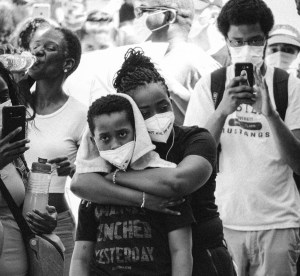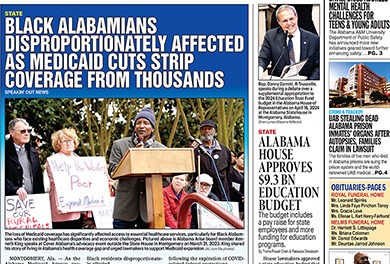
Photo by Nechirwan Kavian on Unsplash
By DaQuan Lawrence
As the global pandemic continues to develop, catalyze worldwide change, and affect various populations and segments of society disproportionately and indiscriminately, it’s important to consider how working together to support not only the African-American/Black community, but international African diaspora is important. The diaspora’s experience has always been unique, universal and significant.
Despite transitions between the Atlantic slave trade, colonization, African independence movements, and the current global digital political economy – which depends on African economies for exports and labor, as well as the labor, influence, and capital of the diaspora – African descendants have been economically, socially, and politically integral throughout each era. Nevertheless, Black people have become politically and economically marginalized in society, creating inherently prejudiced, contrived, and egregious violations of international human rights. This was the status quo before the COVID-19 pandemic, which has exacerbated many social and economic issues.
When considering the politics of the pandemic one can understand how more egalitarian and non-elitist responses to the pandemic are necessary. Issues such as the non-democratic designation and chance criterion for remote and non-remote work and essential and non-essential labor come to mind. Children, students, women, parents, prisoners, elder citizens and other special populations continue to be distinctively impacted by the pandemic. Recent reports of the delta variant enabling the spread of coronavirus to babies and toddlers is another reason to work together. Furthermore, the fact that everyone is not insured or employed is also an issue of concern as the international vaccine distribution has revealed the inherent classism and economic apartheid of the global political economy.
No matter where you fall within the vaccination spectrum: enthusiast, advocate, on the fence, anti-vaccination, or undetermined, it’s important to consider Pan-African or mutual aid strategies and practices to support members of the diaspora. Classism already existed before COVID-19 and the recent media and political framing of “vaccine apartheid” or the vaccinated vs unvaccinated, is another conflation of social and economic issues that have been exacerbated and revealed by the pandemic. The vaccinated should help protect the unvaccinated and vice versa. Just because one is educated and vaccinated, does not make them a healthy, law-abiding, spiritual, good Samaritan, and people who are unvaccinated and work in certain occupations are not the problem with society.
Comprehensively speaking, African nations have handled the pandemic particularly well despite the third wave of COVID-19 infections and being generally treated paternally by developed nations ravaged by COVID-19 such as the United States. The Congressional Research Service notes that “the United States has directed most of its COVID-19-related economic aid to Africa through multilateral institutions such as the International Monetary Fund, aside from a few bilateral programs”. In reply to a statement that the U.S. will buy and donate half a billion Pfizer vaccines to 92 low- and lower-middle-income countries and the African Union, throughout two years, esteemed Kenyan writer and activist, Nanjala Nyabola, likened this notion to the failing paradigm and foreign aid strategy of dead aid. “We asked for justice. They are giving us charity.” Those interested in African states’ and Black people’s welfare are compelled to agree with her.
Overall, there is a lack of vaccine availability to Black communities and African nations. Globally, some states and municipalities are offering incentives for vaccination, as booster shots are now being encouraged even though everyone has not received one vaccine dosage. In August 2020, when asked why the third booster shot is necessary, if the two-vaccine dosage was successful in the United States, Dr. Rochelle Walensky, head of the CDC, stated “we’re starting to see, in other countries, that they’re starting to see waning infection against more severe outcomes, and we’re planning for it, so we can be ahead of this virus.” Interestingly, this could imply that infections are decreasing in other countries.
Intensive Care Unit (ICU) capacity is one of the latest pandemic metrics used to decide whether lockdown measures are required to limit effects of the coronavirus and support health care resources. In essence, it’s a measurement of whether pandemic policies should be more or less authoritarian as the number of coronavirus cases have increased during the delta variant surge. Throughout the first year of the pandemic, there were numerous reports of state hospital ICU capacities operating between 75-85% and warnings they could increase.
In Western nations such as America, France, Spain, and Italy, the intensive care required for COVID-19 patients is occasionally surpassing levels not seen since spring 2020. Many health officials have advocated for stricter lockdowns, warning that increasing the number of beds is ineffective because there aren’t enough doctors and nurses trained to staff them. The number of serviceable ICU beds is limited by the number of available nursing staff members able to work with intensive-care patients, a factor not explicit in reporting. Thomas Tsai, professor of health policy at Harvard University, notes that “ this current phase of the pandemic, it’s not so much the hospital capacity shortage that’s the issue. It’s really a shortage of personnel and healthcare workers”.
There are now growing concerns of contracting the virus after vaccination, especially after reports of several deaths post-vaccination, and news of celebrities and other public figures testing positive after being vaccinated. Regardless of our social, political, and economic status, the global pandemic has revealed the need for greater Pan African and inter-diaspora mutual aid, support and collaboration.
The opinions on this page are those of the writers and not necessarily those of the AFRO. Send letters to The Afro-American • 145 W. Ostend Street Ste 600, Office #536, Baltimore, MD 21230 or fax to 1-877-570-9297 or e-mail to editor@afro.com
Help us Continue to tell OUR Story and join the AFRO family as a member – subscribers are now members! Join here!
The post Op-ed: Pan-African Considerations for the Diaspora in COVID-19 Era appeared first on AFRO American Newspapers .










